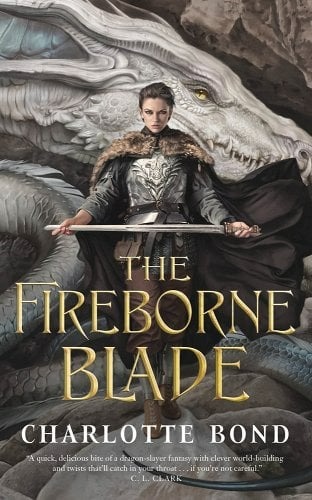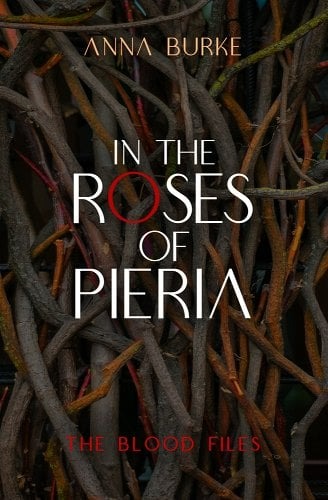Charlotte Bond’s dark fantasy novella, The Fireborne Blade, is a beautifully straightforward dungeon crawler until it isn’t. Protagonist Sir Maddileh is a rarity as a knighted woman and she’s in dire need of a truly spectacular feat to reclaim her honor and restore her standing at court. Enter her current foolhardy quest to retrieve the Fireborne Blade. The onlyRead More
Dark Academia Ft. Sapphic Longing: In the Roses of Pieria by Anna Burke
Before we embark on our journey, a disclaimer: Anna Burke is a former professor and a friend, which is why I hesitated to write about In the Roses of Pieria. But who am I to second guess optics, and why should I let that get in the way of sharing one of my favorite moody OctoberRead More
A Land of Gods, Monsters, and Talking Cats: Monstress Vol. 1 by Marjorie Liu and Sana Takeda
Buy this from Bookshop.org to support local bookstores and the Lesbrary! Oftentimes bleak but consistently awe-inspiring, Liu’s world of steampunk, art deco fantasy is a marvel to behold. This is definitely one to check the trigger warnings for. Set in a world where humans and Arcanics (a cross between humans and a mystical race calledRead More
Evil Gods, Murder, and Angry Women: The City of Dusk by Tara Sim
Bookshop.org Affiliate Link Tara Sim’s The City of Dusk has been on my to-read list for a while now, and with the second book in the series—The Midnight Kingdom—having just come out, now seemed a great time to get around to it. This dark fantasy novel follows the four heirs of the noble houses of Nexus: Taesia,Read More
Danika reviews The Book Eaters by Sunyi Dean
Amazon Affiliate Link | Bookshop.org Affiliate Link This dark fairy tale dances on the line between fantasy and horror. It follows Devon, a book eater, who is part of one of the aristocratic houses of book eaters (think vampires, but they eat books instead of drinking blood). She is one of very few women bookRead More
Rachel reviews The Book Eaters by Sunyi Dean
Amazon Affiliate Link | Bookshop.org Affiliate Link A fast-paced, truly unputdownable fantasy novel, Sunyi Dean’s The Book Eaters is the kind of expansive adventure novel that draws you in and keeps you there. Dean’s writing represents a fabulous new voice in fantasy literature. The world of The Book Eaters introduces us to a secret lineage of aristocratic beings whoRead More
Nat reviews The Mermaid, the Witch, and the Sea by Maggie Tokuda-Hall
Amazon Affiliate Link | Bookshop.org Affiliate Link Sometimes we pick up a book with certain expectations – sometimes we also discover that those expectations are way off the mark. When I set out to read The Mermaid, the Witch, and the Sea I knew this: it was a YA book with romance, it was gaaay,Read More
Danika reviews Briar Girls by Rebecca Kim Wells
Amazon Affiliate Link | Bookshop.org Affiliate Link This is a YA fantasy book about Lena, a girl who kills everyone she touches. Her parents have been keeping her hidden, moving around a lot whenever things get dicey–Until one day, her mother leaves and never comes back. The witch who cursed Lena is still looking forRead More

